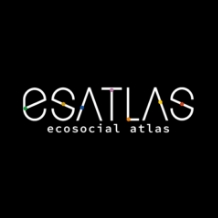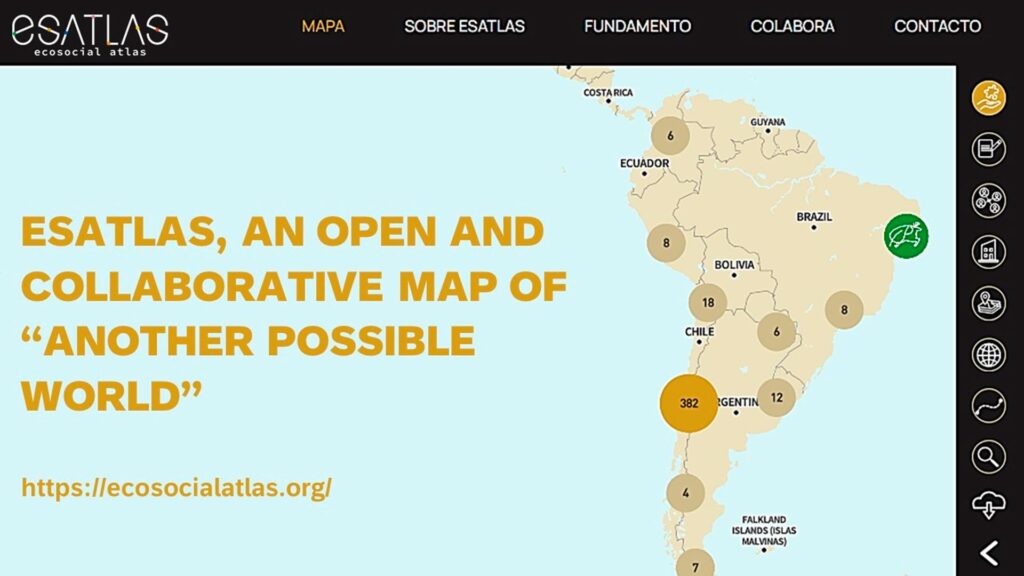
The Ecosocial Atlas
ES Atlas is currently exploring synergy potentials with other collaborative mapping projects for resource sharing, know-how transfer, joint dissemination, etc.
If you are interested in exploring partnership opportunities, please contact us.

Project Description
In response to the complex challenges of the Anthropocene, a growing number of initiatives are emerging that propose social innovations across legal, educational, political, economic, technological, and policy domains. These initiatives aim to address both the root causes (e.g., energy and urban metabolisms, techno-economic systems, governance structures) and the environmental consequences (e.g., climate change, biodiversity loss, pollution) of unsustainable development.
The Ecosocial Atlas (ESAtlas) is a virtual, geo-referenced platform that maps sustainability transition initiatives worldwide. The platform is accessible at www.ecosocialatlas.org (temporarily offline)
ESAtlas defines transformation as any social intervention that seeks to destabilize the dominant civilizational model driving the Anthropocene, characterized by:
- Thermo-industrialization: Dependence on cheap heat energy from burning fossil fuels.
- Capitalism: A regime dependant on perpetual material expansion and capital accumulation for its political and economic stability.
- Mass Consumption: A cultural norm shaping individual and collective subjectivities.
This model is synthesized under the acronym TICC (Thermo-industrial, Capitalist, Consumerist).
Project Goals
- To map and make visible global initiatives that challenge the TICC model and promote commons-based, sufficiency-oriented, and degrowth-aligned economies.
- To foster collaboration and knowledge exchange through an interactive, open-access digital platform.
- To support academic, socio-political, and policy-making communities with freely available, geo-referenced data on sustainability transitions.
To demonstrate how digital tools can actively support socio-political processes of transformation.
Expected Impacts
- Knowledge Sharing: The ESAtlas increases the visibility and connectivity of grassroots and institutional sustainability efforts.
- Policy and Research Support: By offering open data, the platform serves as a resource for researchers, activists, and policymakers.
- Technological Empowerment: It exemplifies how digital infrastructure can be repurposed to support transformative, commons-oriented change.
- Cultural Shift: By challenging the TICC model, the project contributes to a broader reimagining of societal values and systems toward sustainability.